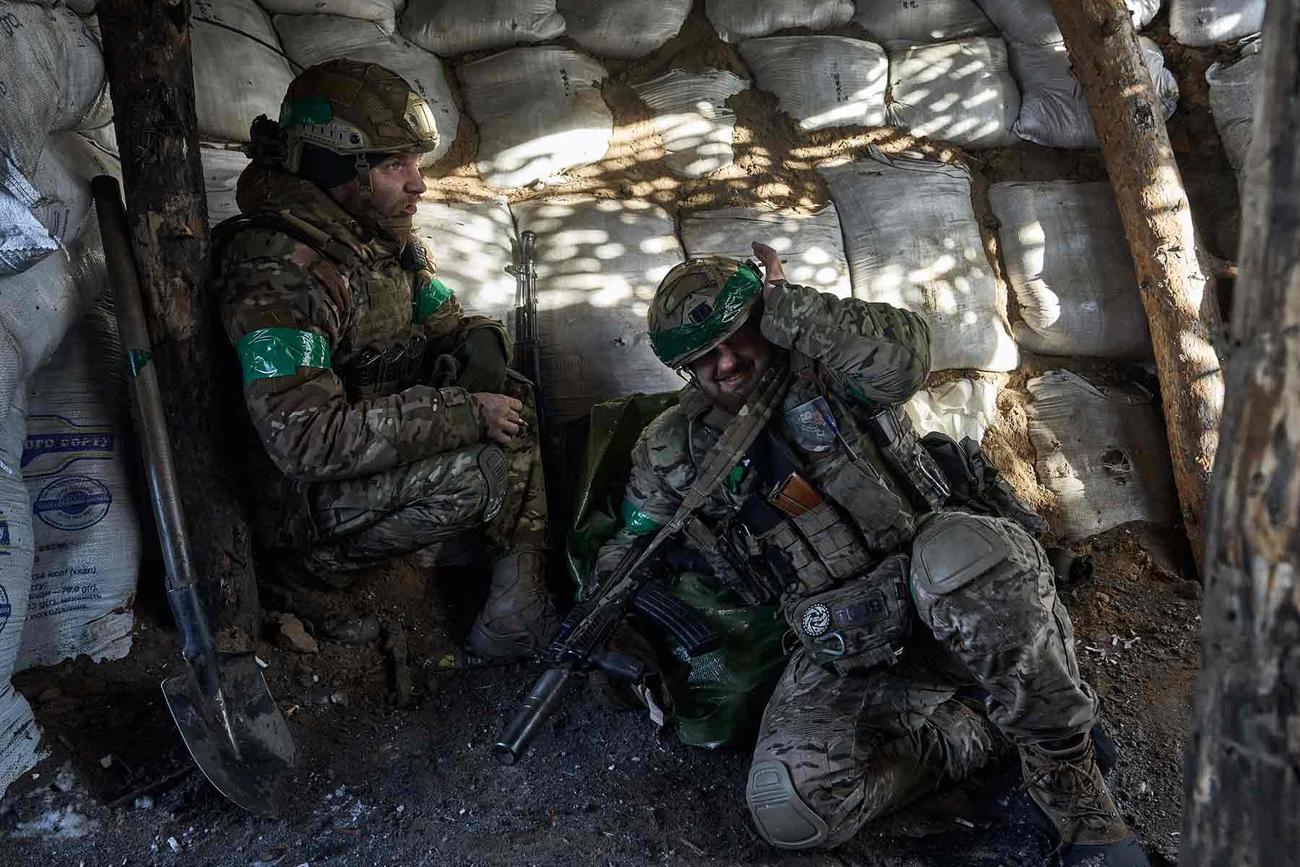
WASHINGTON — Donald Trump is considering scaled-back commitments to some NATO members and a push for Ukraine to negotiate an end to the war with Russia if he returns to power next year, according to people familiar with the matter.
Among possible moves in a second term, Trump allies have discussed essentially a two-tiered NATO alliance, where Article 5 — which requires common defense of any member under attack — would apply only to nations that hit defense-spending goals, according to the people, who asked not to be identified and cautioned that no policy decisions have been finalized. Others are advocating new tariffs on laggard countries, they said.
Trump advisers have also discussed getting Ukrainian President Volodymyr Zelenskyy and Russian President Vladimir Putin around a negotiating table early in a potential second term, according to the people.
The initiatives, if pursued, would upend decades of U.S. policy, fracturing a defense alliance that has shaped European security since the Cold War and worrying allies in Asia about Washington’s commitment to counter China.
One adviser to Trump said the promise of severing U.S. military aid could help get Ukraine to the negotiating table, while the threat of increased U.S. assistance could prompt Russia. Advisers including Larry Kudlow and Robert O’Brien have also publicly pushed for tougher sanctions on Russia’s central bank to sway Putin.
The people added that the Trump campaign is not currently in talks with Russian or Ukrainian intermediaries, partly because that would likely run afoul of the Logan Act, a U.S. law that prohibits private entities from negotiating on behalf of the government.
Trump’s tense relationship as president with NATO reemerged this week when he recalled telling one member country that he’d let Russia do “whatever the hell they want” if it didn’t hit the bloc’s defense spending targets.
President Joe Biden and allies in Europe condemned the warning, which people familiar with the situation said was a reference to conversations with Germany’s former leader Angela Merkel. During his term, Trump pushed NATO countries to reach their defense spending targets of at least 2% of gross domestic product, a level 18 out of 31 members are expected to hit this year.
“President Trump got our allies to increase their NATO spending by demanding they pay up, but Joe Biden went back to letting them take advantage of the American taxpayer,” Jason Miller, a senior adviser to Trump, said in a response to questions, adding that the former president never actually moved to dismantle the alliance during his term.
Amid wars in the Middle East and Europe and intractable tensions with Beijing over Taiwan, Trump is poised to influence U.S. foreign policy from the sidelines in ways never before seen in modern presidential politics.
That has left U.S. allies bracing for his possible return and his supporters in Congress trying to dodge his wrath. As the war in Ukraine nears its two-year mark, Trump has already sunk the chances of a U.S. aid bill clearing Congress this week, with Republican leaders in the House heeding his calls to reject it despite enough bipartisan votes.
“He’s not negotiating with other countries or making foreign policy,” said Emma Ashford, senior fellow at the Stimson Center. “But they’re reacting to the potential for him to make changes if he’s elected.”
While the most immediate impact of a Trump return would be felt in Europe, a shift in Washington’s stance on Ukraine would likely be seen as a signal to Beijing over Taiwan, another strategic partner seen by the U.S. as threatened by a bigger neighbor.
Beijing recently suggested Trump may abandon Taiwan if he’s back in office. “The U.S. will always pursue America first, and Taiwan can change from a chess piece to a discarded chess piece at any time,” Chen Binhua, spokesman for the office in Beijing that handles Taiwan matters, said Jan. 31. He was responding to a question about Trump comments in July, in which he avoided answering whether he would defend Taiwan if China attacked and complained that the island took America’s semiconductor business.
The U.S. ambassador to NATO, Julianne Smith, drew a direct link between action on Ukraine and China. Putin must understand “that Western support is not waning, that he cannot, unprovoked, attack another country and infringe on their sovereignty,” she said in a Bloomberg Television interview. “This is a message we need to send to Putin but also other countries around the world” including China, she said.
Merkel’s successor in Germany, Chancellor Olaf Scholz, said this week that Germany will meet the alliance’s spending goal this year, a target his country set after Russia’s invasion of Ukraine. Before the shock of the war, Merkel struggled to explain to Trump that military spending at that level was politically unfeasible.
During his presidency, Trump berated the former German chancellor over the issue in multiple conversations, according to people familiar with those interactions. Over the course of those talks, the former president suggested to Merkel he would not be responsible for what happened if Germany failed to pay, one of the people said. He ended another by hanging up on her.
“The Germans have a budget surplus and yet refused to pay their 2% NATO obligation,” Richard Grenell, Trump’s ambassador to Germany, recalled of that period in an interview. “When you don’t pay, you’re the country undermining NATO.”
(With assistance from Annmarie Hordern, Arne Delfs, John Follain, Mackenzie Hawkins and Nick Wadhams.)
___
©2024 Bloomberg L.P. Visit bloomberg.com. Distributed by Tribune Content Agency, LLC.
© Copyright 2024 Bloomberg News. All rights reserved. This material may not be published, broadcast, rewritten or redistributed.









